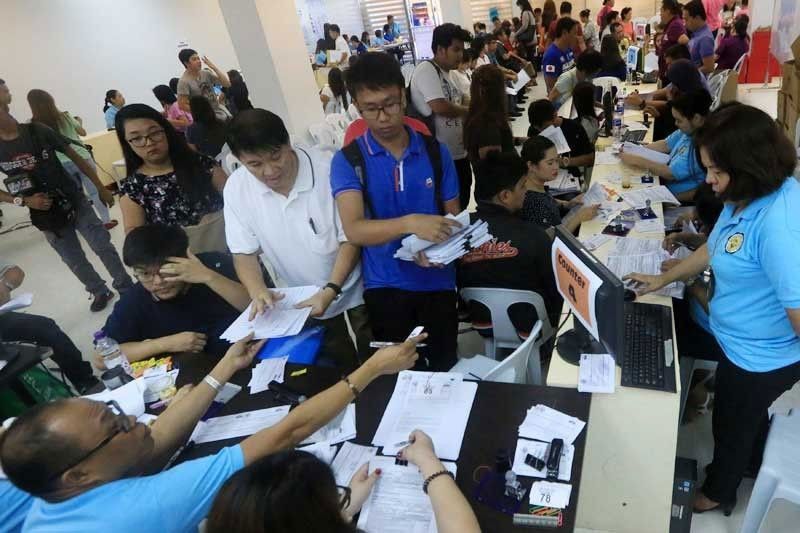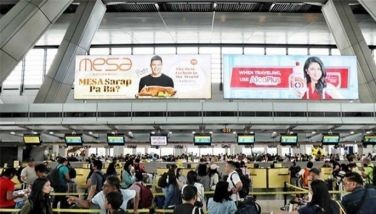TRAIN 2 causing uncertainty among investors — AmCham

MANILA, Philippines — The proposed second package of the Tax Reform for Acceleration and Inclusion (TRAIN 2) law creates uncertainty for existing and new investors as the measure is likely to lead to large scale revenue reduction and job losses, which may be brought about by damaged investor confidence.
In the position paper on Corporate Income Tax and Incentives Reform Act or House Bill 7458 it issued yesterday, the American Chamber of Commerce of the Philippines (AmCham) said it supports the proposed 25 percent corporate income tax (CIT) but would prefer 20 percent, as proposed in HB 7458.
“A rate of 25 percent will not give the Philippines a significant advantage in comparison to other countries. Foreign firms will still find the 25 percent CIT tax rate a deterring factor when comparing the Philippines to other investment locations,” AmCham said as it noted that a 20 percent rate would be close to the ASEAN average, which has more inclusive economies than that of the Philippines as measured by levels of poverty.
It added that a staggered reduction to 20 percent also protects the Philippines against a potential decrease by Indonesia of its 25 percent CIT, which would leave the Philippines still the highest of the ASEAN-6 if its rate is only 25 percent.
AmCham stressed that as the country moves upwards on its path to becoming an advanced nation by 2040, the accompanying tax regime for this new era should ensure that growth is sustained and that new wealth is inclusively distributed to all Filipinos.
“Congress may wish to consider passing the CIT reform separately from FIR. Given the long history of delayed legislation of any FIR reform and the importance of reducing the current high CIT of 30 percent, the Congress should consider a separate bill to reduce the CIT effective Jan. 1, 2019,” the group also said.
AmCham pointed out that the rate of reduction should be studied carefully and that it supports the tax collection efficiency measures – such as requirements for the use of electronic receipts and electronic filing – in the bills, noting that the tax efficiency rate of the Philippines of 12 percent in 2015 is considerably lower than that of Thailand (31 percent) and Vietnam (29 percent).
“We also encourage the Bureau of Internal Revenue and Bureau of Customs to improve their collection efficiency records by widening the taxpayer base and, with the Department of Justice, improving the record of successful prosecution of tax avoidance cases.”
It also said that “the proposed bill creates uncertainty for existing and new investors,” as it pointed out that past bills on Fiscal Incentives (FI) did not remove the five percent gross income earned unbound incentive.
It warned that “until the proposed TRAIN 2 bill is enacted, investors will face uncertainty about the future CIT and FI.”
“Tax projections, an important part of calculations of future revenues, will be handicapped by this uncertainty. CIT and FI in countries competing against the Philippines for investments will be more certain and predictable. The proposed formula for reducing the CIT, made dependent on reductions in total FI reported in TMTA data, makes future reductions in the CIT to 25 percent very uncertain,” AmCham said, referring to the Tax Incentives Management and Transparency Act.
The group proposed a “status quo” on current FI package of Philippine Export Zone Authority (PEZA) and leading IPAs as it cautioned that the radical changes proposed in HB 7214 and HB 7458 will “lead to an end to expansions by many foreign investors and a reversal of the success in recent decades in attracting thousands of foreign firms to invest in the country.”
“The bill as drafted, if implemented, will most likely lead to reduced revenues and job losses on a large scale as a result of damaged investor confidence,” AmCham warned.
Also, AmCham noted that the Philippine manufacturing sector is growing faster in Southeast Asia, next to Vietnam.
“Midstream changes that impact on cost in a major way can literally affect the positive perception of the Philippine business environment and will influence, in irreversible way, decisions to remain, expand, or set up new companies in the country,” it said.
In March and April, AmCham conducted a survey among multinational members likely to be affected by the fiscal incentive policy changes proposed for TRAIN 2. Most of those who replied benefit from the current fiscal incentives.
Within ASEAN, countries like Brunei, Laos, Malaysia, Thailand and Vietnam have reduced their CIT rates since 2009, the year when the current rate in the Philippines went into effect.
The practice of incentivizing investment has become increasingly common in developing as well as developed countries as national and local governments compete for multinational investors, as a tool to encourage development of selected industries and to accelerate creation of better-paying stable jobs for growing populations.
TRAIN 2 also proposes to end the fiscal incentives of exemption from local taxes.
AmCham said fiscal incentives are an important factor in most investment decisions since taxes, duties, fees and deductible expenses add to business expenses. When they are waived or reduced, the cost of doing business is less, making the country more competitive. Some countries are able to offer a major investor extremely attractive menus of incentives – long income tax holiday with reduced CIT thereafter with indefinite renewals, free land and new roads.
Also critical is to preserve the value of PEZA and other economic zones, AmCham said, and to manage carefully any transition from current fiscal incentives to the new regime under TRAIN 2.
“Fiscal incentives compensate for higher costs in Philippines. With higher costs of doing business in the Philippines fiscal incentives play an important role in making an investment in the country more attractive to efficiency-seeking foreign investors,” AmCham said.
“For these reasons, the incentives the Philippines offers should be beyond being equal to competitors. They should be more attractive in order to narrow the marginal advantage of other locations,” it added.
- Latest
- Trending





























